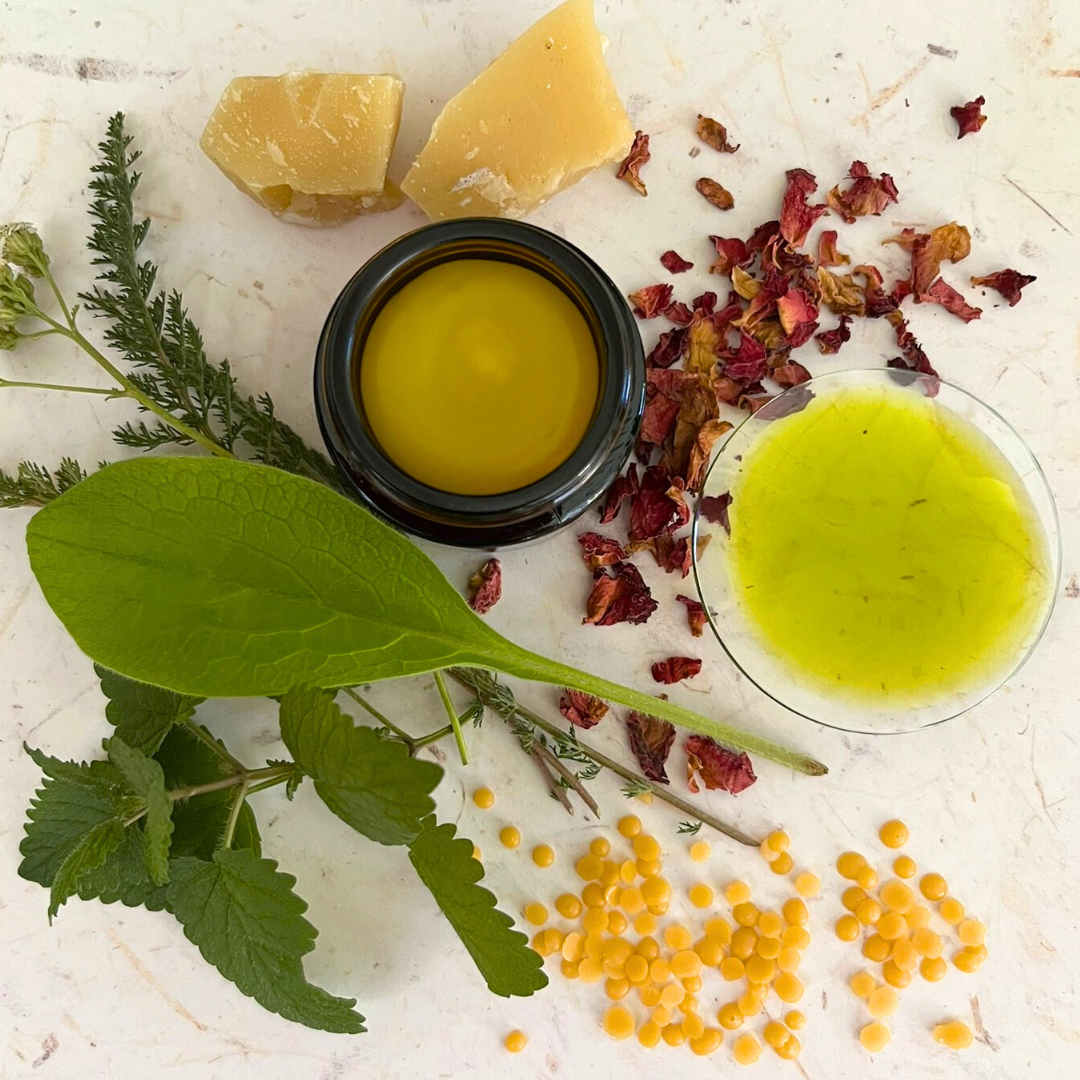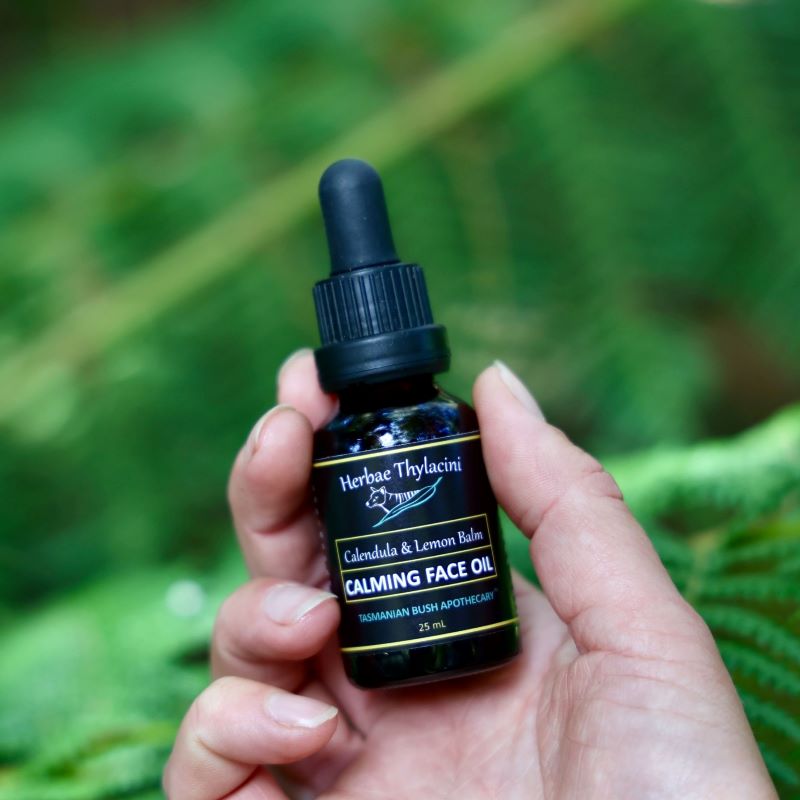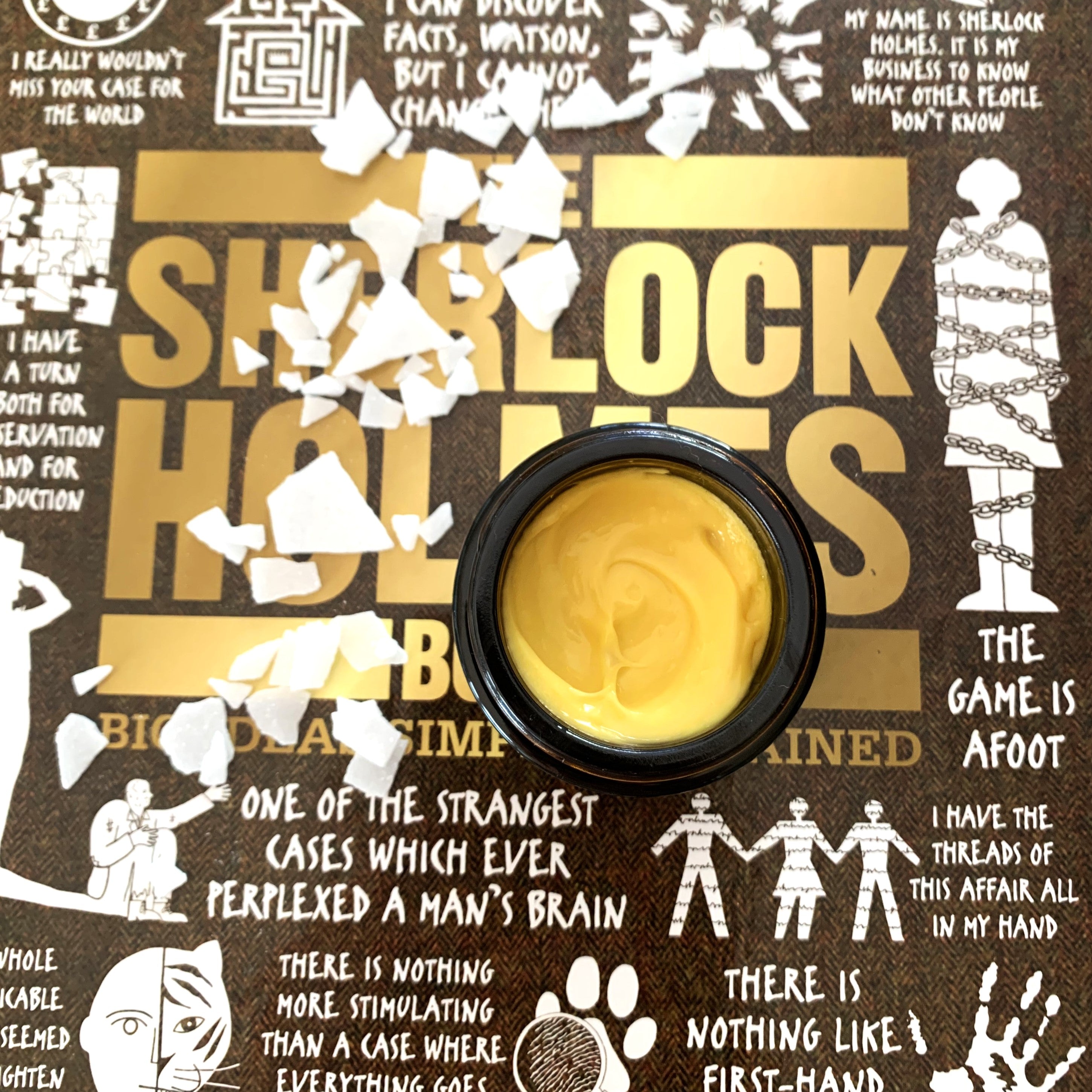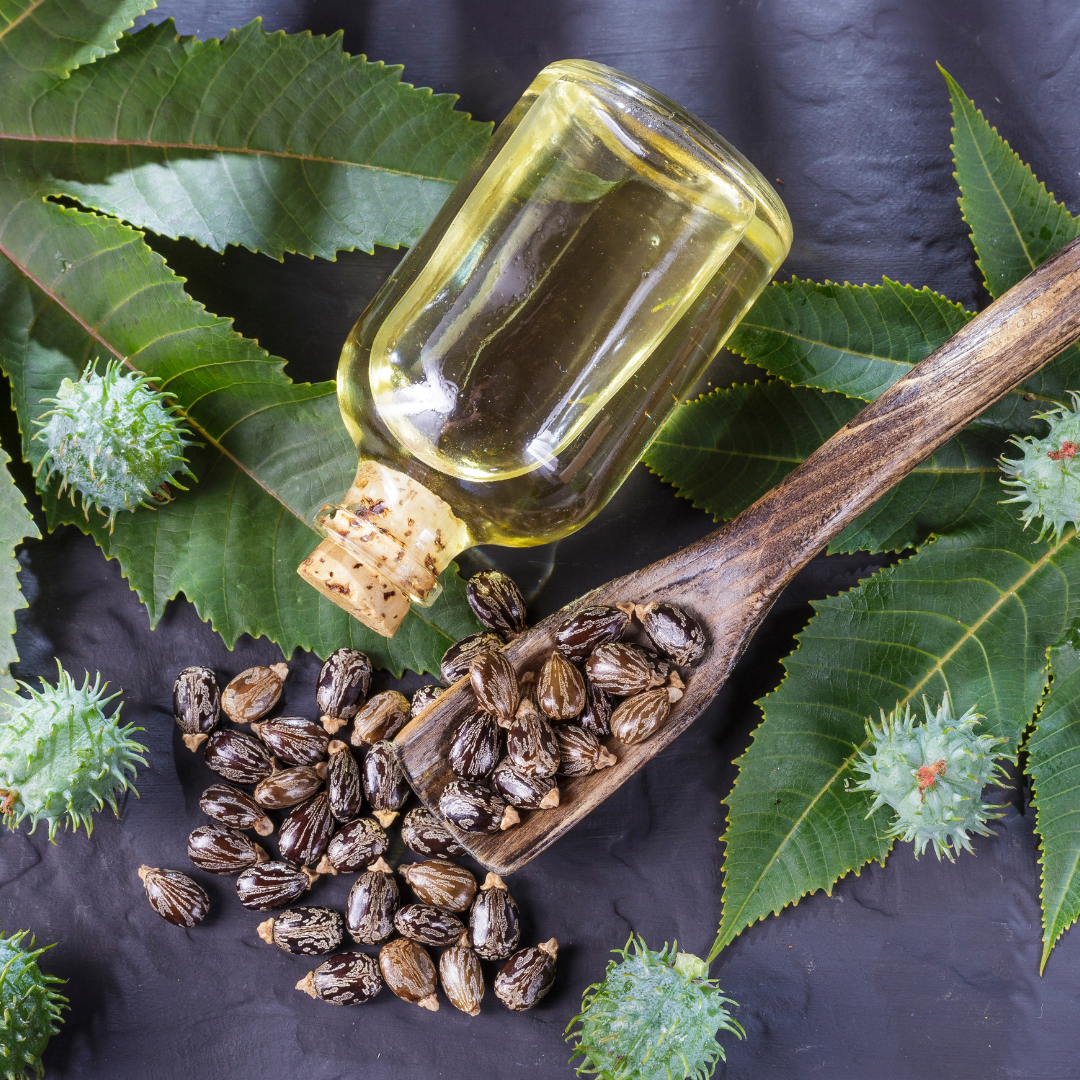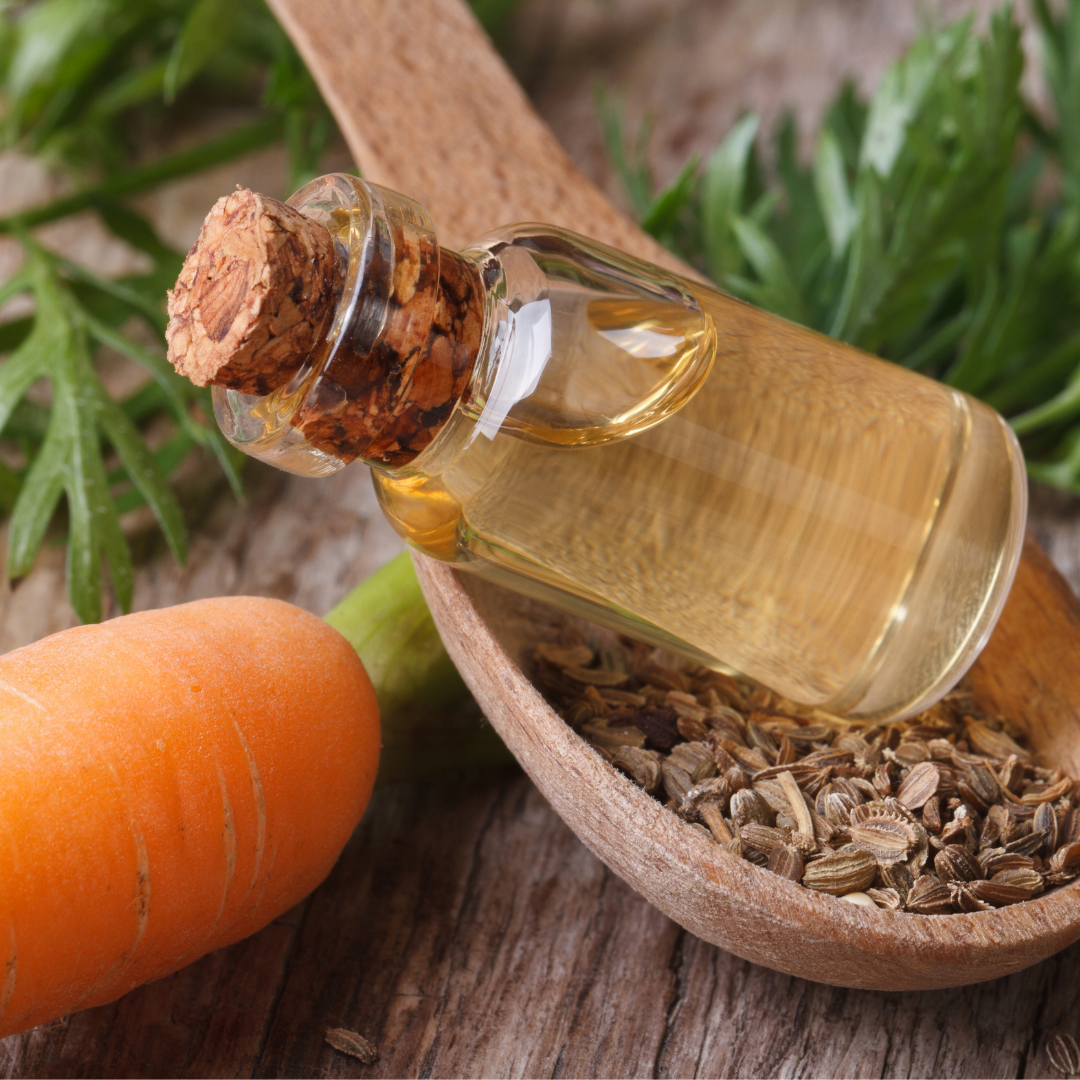
3 Types of Carrot Seed Oil in Natural Skin Care
There are many articles and YouTube tutorials available online about carrot seed oil and its use in skin care. These blogs and videos range from summarizing its composition and benefits for the skin, to how to make your own. Having read a great deal of them by now, I have yet to come across a carrot seed oil article that got it all right!
There are 3 different types of carrot oil – only two being actual seed oils. They are all produced by different techniques and they all have vastly different chemical composition and effects on the skin. As a result of that, they cannot be used interchangeably in natural skin care products. Nevertheless, online articles frequently mix them all together.
I go over different types of plant and herbal extracts in detail in the Herbal Extracts for Natural Skin Care Online Course. If you would like to learn more about the chemistry of medicinal herbs and how to make your own herbal extracts for skin care, make sure to sign up. For now, let’s unpack the three different types of carrot oil.
Cold-pressed carrot seed oil
Composition
This type of carrot seed oil is produced the same way olive oil or sunflower oil is. Briefly, pressure is applied to carrot seeds, which yield their fixed oil. Carrot seeds contain around 8% of fixed oil [1]. Just like all fixed plant oils, carrot seed oil is mostly composed of triacylglycerols (TAGs).
Here, please, allow me a brief chemistry detour, crowned by exposing several misinterpreted studies. If you would prefer the shorter version, skip to the last paragraph of this section.
According to several published studies [2 and the references therein], the main fatty acids in cold-pressed carrot seed oil (which together with glycerine are the main component of TAGs) are oleic and linoleic acid. This would make carrot seed oil very similar to for example apricot kernel oil. As it turns out, however, this information is not correct!
The method used in the experimental setup of the cited study cannot determine the structure of the fatty acids accurately. The experiment confirmed that the main fatty acid present in carrot seed oil has 18 carbons and 1 double bond within its structure. However, the position of the double bond within the hydrocarbon chain of the fatty acid could not be accurately determined. As a result, it got lumped with the most common 18:1 fatty acid, which is oleic acid.
This is very surprising, because there are methods, which can determine the position of the double bond. Furthermore, articles published 13 and 25(!) [1,3] years prior to the cited study correctly concluded that the main fatty acid present in carrot seed oil is petroselinic acid. Petroselinic acid, like oleic acid, also contains 18 carbons and 1 double bond. The double bond is present on carbon 6, as opposed to carbon 9 in oleic acid.
The main fatty acids present in cold-pressed carrot seed oil are petroselinic acid (60-70%) followed by linoleic acid (~12%). Unrefined carrot seed oil additionally contains a small amount of polyphenols [4].
Effect on the skin
Safe to say, that skin care brands (those that read the correct papers on the composition of carrot seed oil), quickly took to the supposedly amazing anti-aging and anti-inflammatory properties of petroselinic acid. I did not come across any research worth mentioning. However, just like any fixed plant oil, carrot seed oil will be emollient and to a certain degree protective and hydrating. Whether it performs better at these tasks than a said apricot kernel oil is not clear.
Additionally, even its small polyphenols content makes cold-pressed carrot seed oil antioxidative [4]. Finally, many online articles and stockists of carrot seed oil claim the oil has antifungal properties. However, with this statement, we are moving into an altogether different territory.
Carrot seed essential oil
Composition
Carrot seed essential oil is also, as the name suggests, derived from the seeds of the plant. However, the method with which it is produced is very different. Essential oil of carrot seeds is produced by a process called hydrodistillation. This process yields a product with a drastically different chemical composition compared to the cold-pressed carrot seed oil.
Carrot seeds contain <1% of essential oil components [1]. The main component of carrot seed essential oil is a compound called carotol. Carotol makes up to 70% of the carrot seed essential oil. This compound is followed by alpha-pinene, daucadiene, beta-caryophyllene, and daucenol [5].
Despite many skin care bloggers claiming so, carrot seed oil contains neither vitamin C nor beta carotene! (This is valid for cold-pressed carrot seed oil too!)
Effect on the skin
It is the sesquiterpene carotol, which exhibits antifungal properties [6,7]. Because carotol is not present in cold-pressed carrot seed oil, if you would like to reap this benefit, you must reach for the essential oil. This study [6] mentions a practical application of carotol to protect rice crops against pathogenic fungi. So not quite skin care, sorry. Carotol and carrot seed oil was also studied for its mosquito repellent activity [8]. With success.
Carrot infused oil
Composition
Finally, we arrive at the piece-de-resistance: carrot infused oil! It is produced in a way that is markedly different from producing both, cold-pressed carrot seed oil and carrot seed essential oil. Firstly, carrot infused oil is NOT made from seeds. It is made from carrots’ roots, i.e. the actual orange bit of carrot we all know and consume. Carrot infused oil is prepared by macerating carrot roots in a fixed oil of your choice (commonly olive or sunflower oil).
Carrot infused oil has deep orange colour. It (and only it) captures the "essence" of carrots: the compounds that gave carrot its name (or was it the other way around?): carotenoids.
The most famous carotenoid of them all is beta-carotene, also called provitamin A. Beta-carotene can be metabolized into vitamin A in our bodies. Vitamin A is also known as retinol. And retinol is certainly a buzzword in the skin care world.
Note: To my understanding it is only the root, not carrot seeds that contain beta-carotene in a significant amount. If there is a tiny amount of beta-carotene in cold-pressed carrot seed oil, there is certainly none in the essential oil.
If someone tells you that carrot seed essential oil contains protective beta-carotene, run away.
Effect on the skin
Describing the difference between retinol and beta-carotene is well beyond the scope of my article, as is the use of retinol in skin care. Briefly, retinol is regarded as the most amazing anti-aging skin care ingredient for its ability to increase synthesis of collagen and thus diminish wrinkles.
Beta-carotene alone cannot do the trick of retinol. However, carotenoids in general are very strong antioxidants. They primarily protect plants from the effects of UV radiation (which plants do need to perform photosynthesis, but excess UV would harm them). Obviously being stuck deep in the ground, carrot root is not exactly exposed to excess UV radiation. I promise I will not take another detour at this stage to explore the role of carotenoids in carrot roots.
The same protection that carotenoids can provide to plants they can provide to our skin. Importantly, topical application of carotenoid rich products such as carrot infused oil does not provide an appropriate SPF protection. However, the carotenoids within can lower the effect of oxidative stress in our skin and be effective against premature aging.
What Wikipedia got wrong
The carrot seed oil entry on Wikipedia additionally mentions flavonoids: luteolin, luteolin 3'-O-beta-D-glucopyranoside, and luteolin 4'-O-beta-D-glucopyranoside. However, these compounds were found in a methanol extract of carrot seeds [9], which is an extract altogether different from all of three carrot seed products mentioned above. None of the carrot oils I wrote above will contain these flavonoids.
Herbae Thylacini and carrot seed oil
I do not use any of the above carrot oils in my herbal skin care. Why?
- Cold-pressed carrot seed oil
While there are plenty of Australian-grown carrots, I do not know of any local producers who would be pressing oil from their seeds.
- Carrot seed essential oil
Ditto + I stay clear of essential oils in most of my remedies.
- Carrot infused oil
While I could easily prepare this myself using locally grown organic carrots, I have far more potent carotenoid-rich herbs in my repertoire.
If you would like to learn more, join me for one of the editions of the Herbal Extracts for Natural Skin Care online course. For more information, get in touch.
References
[1] Özcan et al., Chemical composition of carrot seeds (Daucus carota L.) cultivated in Turkey: characterization of the seed oil and essential oil, GRASAS Y ACEITES, 58 (4), 2007.
[2] Li et al., Triacylglycerols and Fatty Acid Compositions of Cucumber, Tomato, Pumpkin, and Carrot Seed Oils by Ultra-Performance Convergence Chromatography Combined with Quadrupole Time-of-Flight Mass Spectrometry, Foods, 9, 2020.
[3] Takagi et al., Steric Structures of Triacylglycerols in the Seed Oil of Carrot Daucus carota L. var. sativa, Journal of Japan Oil Chemists’ Society, 44 (11) 1995.
[4] Yu et al., Antioxidant properties of cold-pressed black caraway, carrot, cranberry, and hemp seed oils, Food Chemistry, 91 (4) 2005.
[5] Tisserand, Young: The Essential Oils Safety, First edition 2002, ISBN 9780443062414
[6] Jasicka-Misiak et al., Antifungal Activity of the Carrot Seed Oil and its Major Sesquiterpene Compounds, Zeitschrift für Naturforschung C, 59 (11-12) 2014.
[7] Sharma et al., Antifungal potential and structure activity relationship of carrot seed constituents, Journal of Food Biochemistry, 2019.
[8] Ali et al., Repellent Activity of Carrot Seed Essential Oil and Its Pure Compound, Carotol, Against Mosquitoes, American Journal of Mosquito Control Association, 34 (4) 2018.
[9] Kumarasamy et al., The Assessment of Biological Activities Associated with the Major Constituents of the Methanol Extract of ‘Wild Carrot’ (Daucus carota L.) Seeds, Journal of Herbal Pharmacotherapy, 5 (10) 2005.


